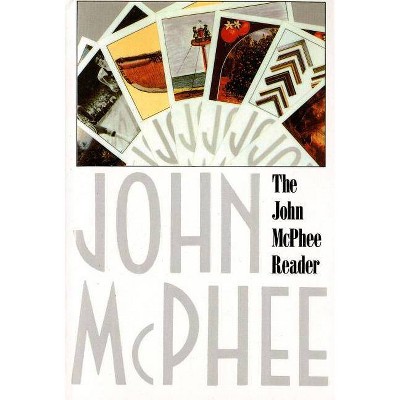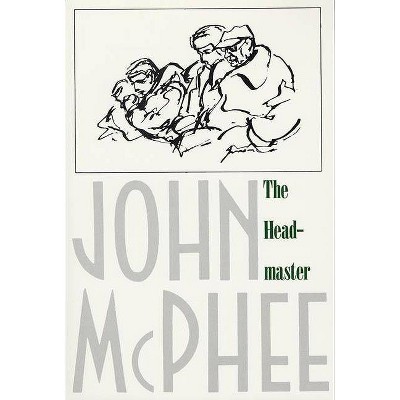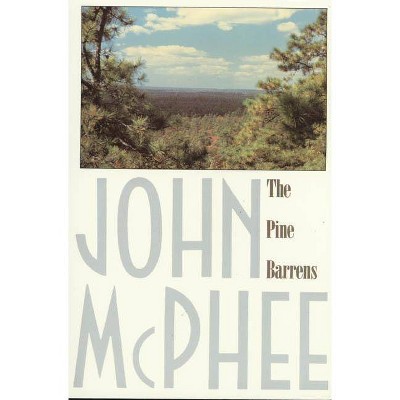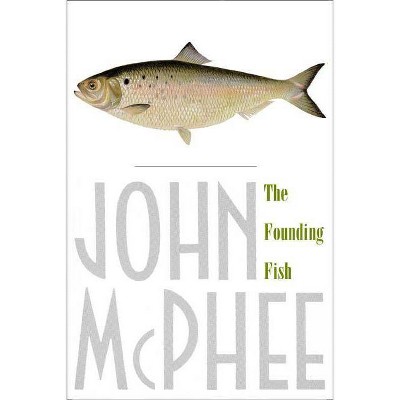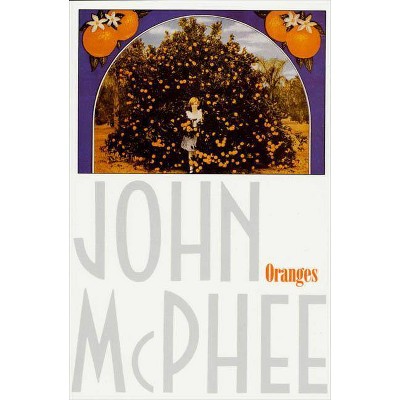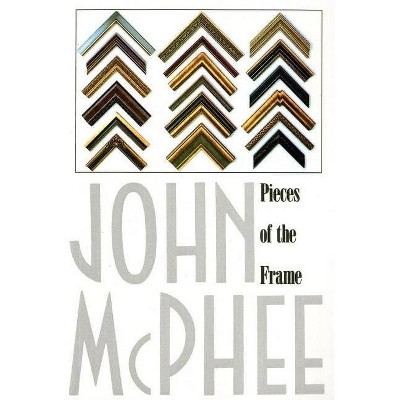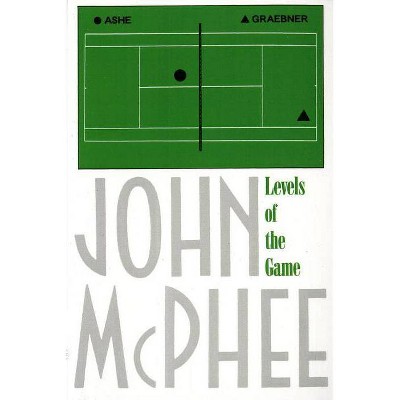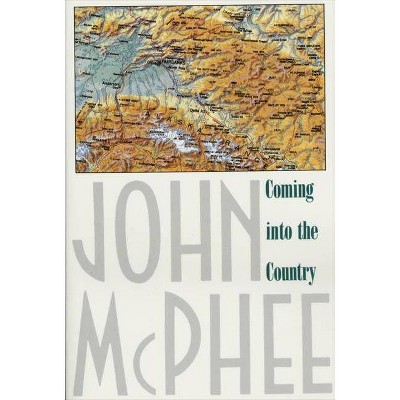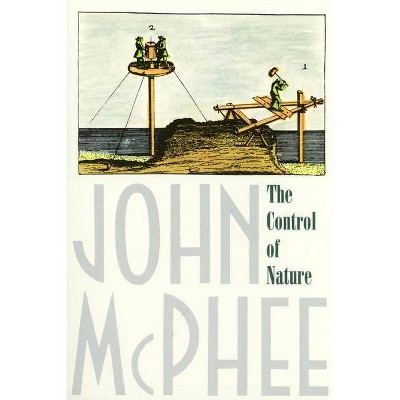The Patch - by John McPhee (Paperback)
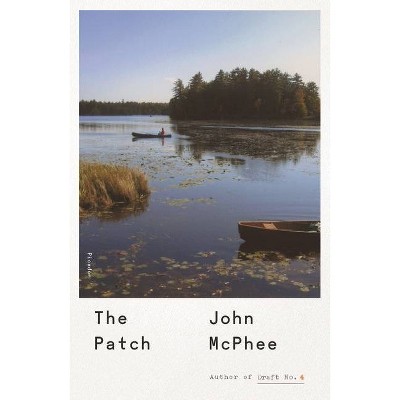
Similar Products
Products of same category from the store
AllProduct info
<p/><br></br><p><b> About the Book </b></p></br></br>This is the seventh collection of essays by the nonfiction master. "[McPhee] again shamelessly employs his go-to strategy: crafting sentences so energetic and structurally sound that he can introduce apparently unappealing subjects...and persuade us to care about them."--Craig Taylor, <i>The New York Times Book Review<i>.w<i>.<p/><br></br><p><b> Book Synopsis </b></p></br></br><p><b><i>The Patch</i> is an "album quilt," an artful assortment of nonfiction writings by John McPhee that have not previously appeared in any book</b> <p/><i>The Patch</i> is the seventh collection of essays by the nonfiction master. It is divided into two parts. Part 1, "The Sporting Scene," consists of pieces on fishing, football, golf, and lacrosse--from fly casting for chain pickerel in fall in New Hampshire to walking the linksland of St. Andrews at an Open Championship. Part 2, called "An Album Quilt," is a montage of fragments of varying length from pieces done across the years that have never appeared in book form--occasional pieces, memorial pieces, reflections, reminiscences, and short items in various magazines including <i>The New Yorker</i>. They range from a visit to the Hershey chocolate factory to encounters with Oscar Hammerstein, Joan Baez, and Mount Denali. <p/>Emphatically, the author's purpose was not merely to preserve things but to choose passages that might entertain contemporary readers. Starting with 250,000 words, he gradually threw out 75 percent of them, and randomly assembled the remaining fragments into "an album quilt." Among other things, <i>The Patch </i>is a covert memoir.</p><p/><br></br><p><b> Review Quotes </b></p></br></br><br><p>This far into a prolific career, it may be a good time to finally unmask [McPhee] as a one-trick pony. In <i>The Patch</i>, he again shamelessly employs his go-to strategy: <b>crafting sentences so energetic and structurally sound</b> that he can introduce apparently unappealing subjects, even ones that look to be encased in a cruddy veneer of boringness, and persuade us to care about them . . . <i>The Patch </i>is just <b>another chapter in an ongoing memoir of generous curiosity</b>. --<b>Craig Taylor, <i>The New York Times Book Review</i></b> <p/>A work that gains its newness through structure alone . . . the experience of having decades of details and observations and exacting description wash over you, the time or the context of the writing never exactly clear, is a fascinating one . . . a more honest and effective way of stitching together the memories of a life, the structure in a way acknowledging that a neat beginning, middle and end is part of the artifice of writing. <b>--Willy Blackmore, <i>Los Angeles Times</i></b> <p/>[McPhee] is a singular gem within the contemporary nonfiction genre: a writer who is known for his reported long-form narratives but who has a prose-poetic sense that extends down to his paragraphs and sentences . . . McPhee is more vessel than magician--and this is said with recognition of his skill. His work is behind the scenes and beneath the surface: The page belongs to the story. <b>--Nick Ripatrazone, <i>National Review</i></b> <p/>McPhee's sentences are as varied as the geographic features he so often describes: some move at a glacial pace, some jut up unexpectedly like exposed granite, others gooseneck like snaking streams, still others burn like understory, quick, dangerous. Always his sentences capture some crystalline essence in their intricate, melodious designs--making connections, spinning webs, accreting meanings. <b>--Tyler Malone, <i>Literary Hub</i></b> <p/>Pulitzer winner John McPhee has spent his career covering subjects that don't inherently seem like fodder for good, much less gripping, journalism: things like geology, oranges, shad. But he's adept at making the esoteric seem essential and personal. <i>The Patch</i>, his latest collection of nonfiction essays, largely about angling and sports, is no exception . . . <b>--J.R. Sullivan, <i>Men's Health</i></b> <p/><i>The Patch</i>, John McPhee's new book, could only have been written by a journalist with decades of experience and an archivist's disposition . . . In McPhee's career-spanning miscellany, he marvels at Iceland's glaciers, shadows Hershey's chief chocolate taster and admires the roller-skating bears of the Moscow State Circus . . . There are many lovely passages in <i>The Patch . . </i>. --<b>Kevin Canfield, <i>Minneapolis Star Tribune</i></b> <p/>"[McPhee] provides a bountiful cornucopia of insightful essays that display the wide range of his interests and tastes . . . McPhee delights in cracking open subjects, both ordinary and esoteric, and making them accessible to the layperson in works that testify to his virtuosity as one of the greatest living American essayists." <b>--<i>Publishers Weekly </i>(starred review)</b> <p/>Delightful . . . It's a rare gift, to be able to see as well as McPhee sees, and to be given the time that it takes to describe the connections between things so clearly . . . It's also rare to encounter a writer who writes so artfully about himself while hardly writing about himself at all. --<i><b>Bookforum</b></i></p><br><p/><br></br><p><b> About the Author </b></p></br></br><b>John McPhee</b> is a staff writer at <i>The New Yorker</i> and the author of <i>Draft No. 4</i>, <i>Table of Contents</i>, <i>Silk Parachute</i>, and <i>The Survival of the Bark Canoe</i> among many other books. He lives in Princeton, New Jersey.
Price History
Price Archive shows prices from various stores, lets you see history and find the cheapest. There is no actual sale on the website. For all support, inquiry and suggestion messages communication@pricearchive.us
